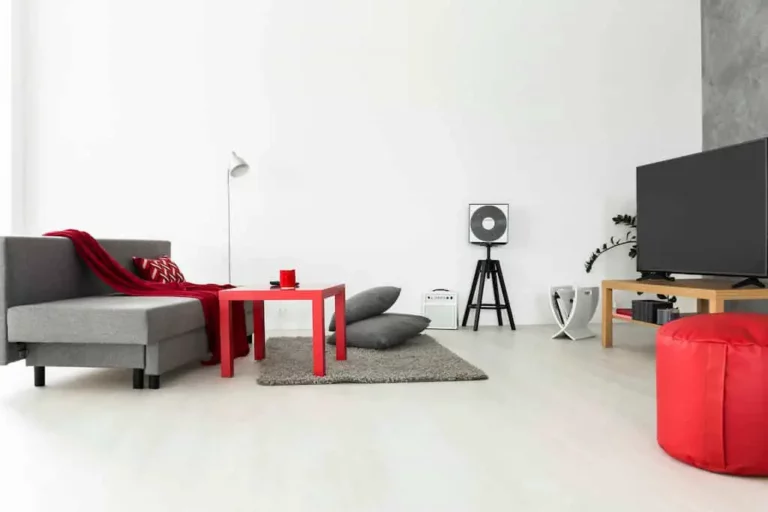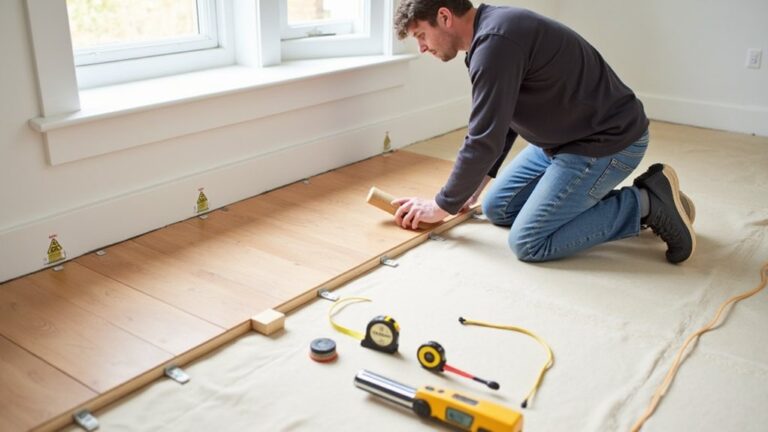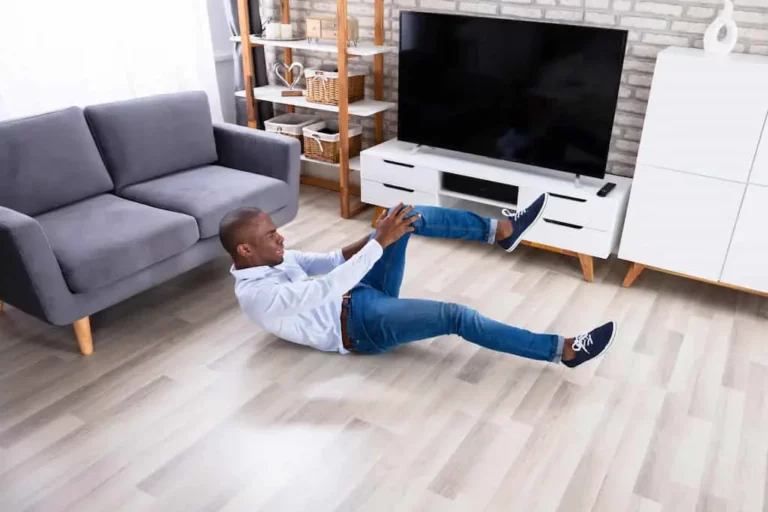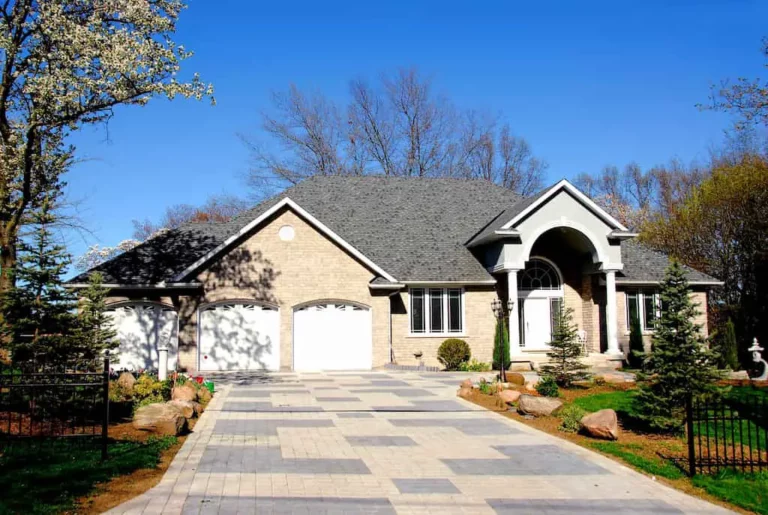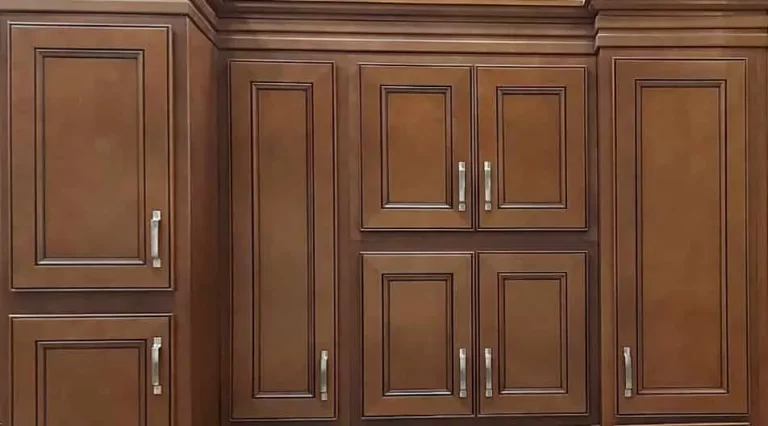Is Vinyl Flooring A Fire Hazard? What You Need To Know
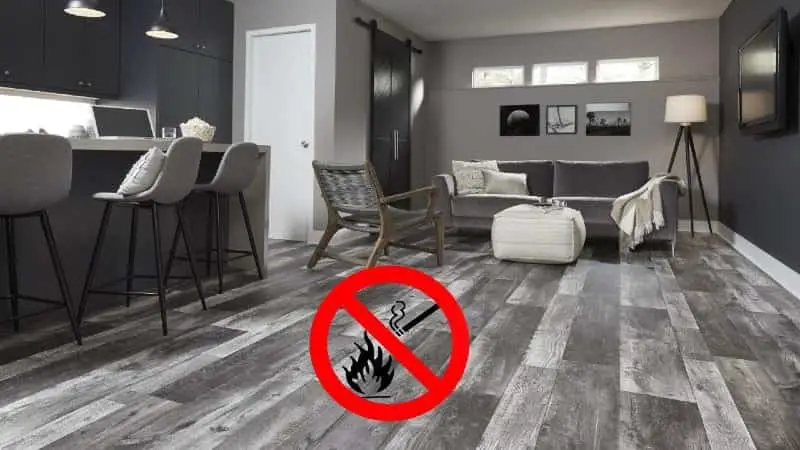
As a homeowner, I know that vinyl floors have their own unique appeal but also have a stigma dealing with their potential safety hazards. Among many home improvement fans like myself, there’s a belief that vinyl flooring can pose a fire hazard.
Is vinyl flooring a fire hazard? Believe it or not, vinyl flooring is the opposite of a fire hazard. Studies show that vinyl flooring is built to resist burnings and curb the spread of fire through a house.
If you’re wondering how vinyl flooring can protect your home, or just curious about why it’s considered to be a fire safety item by builders, this article will shed some well-needed light on the subject.
Is Vinyl Flooring Flammable Or Fireproof?
Vinyl flooring might be made of potentially risky chemicals, but when it comes to fire, it’s a safe material to have. Unlike other flooring materials, vinyl flooring is designed to be flame-retardant and fire-resistant.
Modern vinyl flooring is remarkable when it comes to the safety it offers in kitchens. Unlike most other types of flooring, vinyl stops burning almost immediately after the source of the flame is removed. In other words, spreading fire isn’t something you should expect to see with vinyl.
How Bad Is Burning Vinyl Flooring?
Though vinyl flooring is fireproof, it still has its issues. Vinyl flooring, especially flooring made of PVC vinyl, is known for being made with toxic ingredients. PVC vinyl is known to emit toxic chemicals that can potentially cause a health risk in sensitive individuals, even when it’s not on fire.
When vinyl flooring is lit, the toxins that are in the flooring will begin to burn and release themselves into the air around. Along with creating a foul smell, this emission can pose a health risk and a lung irritant to those around you.
Is Vinyl Flooring Safe?
For the most part, vinyl flooring is considered to be one of the safer flooring options on the market. Despite the fumes, it has a reputation for thanks to the features it offers below:
- Fire Resistance. If your home has a fire, vinyl flooring will help decrease the rate of the flames’ spread.
- Mold Resistance. Since vinyl flooring is known for being waterproof, it is one of the top choices for hospitals concerned about mold, mildew, and bacteria growth in hospital wings.
- No Splinters. Unlike wooden floors, vinyl flooring doesn’t splinter with heavy use.
- Shock Resistance. Many types of vinyl floors come with levels of impact resistance. For people who are worried about joint health, this translates into better cushioning for feet and joints.
Are Vinyl Flooring Adhesives Flame-Resistant?
While the tiles themselves are not prone to fire, many of the chemicals used to hold vinyl flooring in place are. How safe and fireproof the adhesives are can vary from brand to brand, as well as by the method of installation involved.
If you are concerned about using flammable adhesives, it’s wise to do some preliminary research before you buy your installation kits.
Is Vinyl Flooring Good For Commercial Kitchens?
Though vinyl flooring is considered to be fireproof, there are still some caveats about its use in commercial kitchens. Commercial kitchens constantly face a threat of fire. While the fireproof nature of vinyl might make it seem like a good choice, it really isn’t.
Due to the toxic fumes that can emit from even mild burns or overheating, many groups advise against using vinyl flooring in a commercial setting. Since home kitchens aren’t in a state of constant use, vinyl’s deemed safe for personal usage.
How To Tell If Vinyl Flooring Is Right For You

Vinyl flooring currently is one of the most common kitchen flooring materials in the United States. It’s showing no sign of fading into obscurity, either. If you’re wondering whether vinyl flooring is right for you, check for these signs below:
- You are a homeowner, not the owner of a culinary business. Though you might see commercial venues that have vinyl kitchen floors, this material is more suitable for home use.
- To a point, you’re okay with a little chemical smell from time to time. If there’s one drawback to vinyl flooring, it’s the fumes they emit. While they can pose a potential risk to sensitive people, the chemicals vinyl floors emit are generally considered to be safe in small doses. The smell, though, can make some people irritated.
- Cleaning is not a hobby of yours. If there’s one thing that vinyl flooring is known for, it’s being easy to clean. It is remarkably easy to mop, works with most floor cleaning agents, and also is resistant to mold and mildew.
- You want to have a unique design or pattern. Vinyl floors are famous for being available in a huge array of different patterns, making them versatile statement pieces for interior design fans.
- There’s a need for flame-resistant flooring. This is the primary reason why people choose to use vinyl tiling on their kitchen and bathroom floors. It’s a known, accepted way to reduce the chance of fires causing excessive damage.
- You’re on a budget. Vinyl flooring also happens to be known (and praised) for being affordable at almost every price point. This makes it a great choice for people who don’t have enough to splurge on stone kitchen tiles.
What Is The Best Kind Of Vinyl Flooring To Buy?
The answer to this all depends on what you want to do with your flooring. In terms of durability, most contractors agree that flooring with an enhanced urethane finish is the best choice. To maximize your vinyl’s life, avoid picking tiling or sheets that don’t have a coating on them.
Vinyl can also get torn or scratched, which can make flooring lose its durability. To combat this, many contractors suggest using tiling or planks rather than vinyl sheeting. Tiles and planks are easier and more cost-efficient to replace than sheets are.
Is Vinyl Flooring Easy To Install?
For the most part, vinyl flooring is considered to be easy to install. How easy it is to install, though, can vary based on a wide range of different matters. Many DIY enthusiasts have installed vinyl flooring on their home’s floors as part of a day project.
If you are concerned about the installation process or are unsure of your skill, it’s best to hire a professional to do it for you.
Related Questions
- How do I clean vinyl flooring? To clean vinyl flooring, mix a cup of apple cider vinegar with a gallon of hot water, and mop your surroundings. This removes grime and leaves no soap residue. If you prefer to use detergents, just look for any brand that offers floor cleanups.
- What is the most dangerous type of flooring for slips and falls? Bathroom tiling is often considered to be the most slip-prone flooring on the market. Vinyl is now being made to be slip-resistant as a default, making it a safer option for aging individuals.
- How do you dispose of vinyl flooring? Vinyl flooring is not biodegradable but still finds itself in landfills and incinerators. That being said, it is also possible to recycle vinyl flooring.
- Can vinyl flooring pass for wooden flooring? Many homeowners are now turning to vinyl tiling to get the “wood floor” look without having to pay the steep prices for flooring. As long as you choose a high quality, realistic tile pattern, chances are that you can enjoy a highly realistic wooden floor appearance.
- How long does vinyl flooring last? Vinyl flooring can last for 10 to 20 years, based on sunlight exposure, heavy use, and maintenance. To get the most from your flooring, make sure to avoid having it come into contact with sunlight and clean it regularly.
